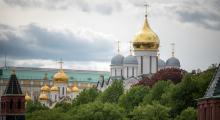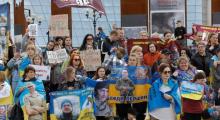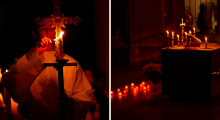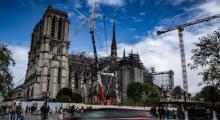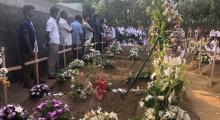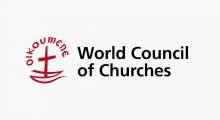Issued by the Catholic Center for Studies and Media - Jordan. Editor-in-chief Fr. Rif'at Bader - موقع أبونا abouna.org
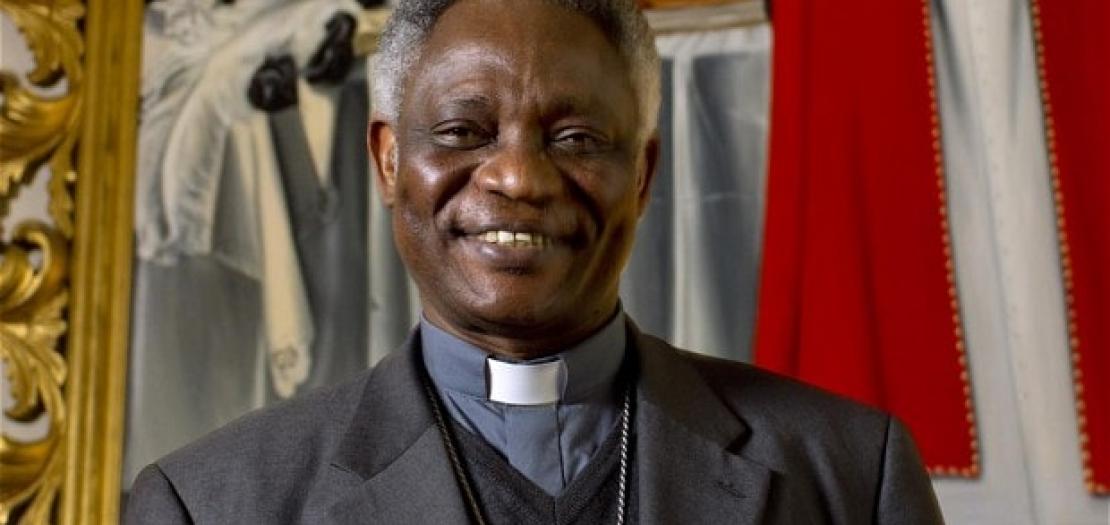
One week after U.S. President Donald Trump sparked a firestorm by allegedly using an obscenity to disparage African nations, although he’s disputed those reports, the Vatican in tandem with other Catholic organizations delivered a major sign of solidarity on Thursday with two of Africa’s most impoverished and conflict-torn nations - the Democratic Republic of Congo and South Sudan.
The idea was to build on a prayer vigil for the two nations presided over by Pope Francis in St. Peter’s Square on November 23, 2017, bringing together voices from both Congo and South Sudan in order to raise awareness and propose solutions.
“We’re looking at how to get Africa on its feet, from the point of view of our modest dicastery,” Cardinal Peter Turkson of Ghana, the Vatican’s most senior African prelate, told the group.
Speaking of Congo and the South Sudan in particular, Turkson noted that both nations have strong Christian majorities, which, he said, means the Church can play a major role in social change.
“The challenge doesn’t consist just in discussions of diplomacy,” he said. “We have to understand how the message of the Gospel can transform the manner of living in these countries.”
Before a large audience at Rome’s Urban University composed mostly of African clergy, seminarians and university students, and buoyed by a Congolese chorus composed of men and women religious as well as laity and youth, Thursday’s event was titled “Building Peace Together.”
It was sponsored by the Vatican’s Dicastery for Promoting Integral Human Development, headed by Turkson, and two Rome-based assemblies for religious orders - the Union of Superiors General (USG) for men, and the International Union of Superiors General (UISG) for women, along with their joint Justice, Peace and Integrity of Creation commission - as well as the Catholic charitable federation Caritas Internationalis, the Diocese of Rome, and the Catholic NGO Solidarity for South Sudan.
The event was planned well before a January 11 White House meeting in which Trump allegedly used an obscene reference to Africa, which triggered, among other things, a protest from the African Union.
There are now different accounts of what was said at that meeting, and while U.N. Ambassador Nicky Haley assured African envoys that the continent is important to the United States in a session on Thursday, she reportedly did not offer an apology. Trump is scheduled to meet African leaders at a summit in Ethiopia January 28-29.
U.S. Ambassador to the Holy See Callista Gingrich was on hand at Friday’s Rome event, making no reference to the recent furor but applauding the “fearless leadership of the Church” in both Congo and South Sudan, and pledging that “you have the full support of the United States.”
In a possible sign of the tensions still lingering from the Trump controversy, after Gingrich left, questions came from the floor about who had invited her, with panelists scrambling to insist they had nothing to do with it.
The focus on Congo and South Sudan, organizers of the Jan. 18 event said, was due to the special carnage both countries have suffered of late, which has made efforts at development considerably more difficult.
In Congo, the World Bank estimates that 77 per cent of its population lives on less than $1.90 a day, considered “extreme poverty,” and its yearly GDP of $445 per capita is the third-lowest in the world when adjusted for inflation.
Congo was also the epicenter of the Great War of Africa, which left an estimated 2-5 million people dead, and the country remains gripped by violence, currently home to roughly 2.7 million internally displaced persons, the world’s highest total. Last June, Catholic observers in Congo estimated that at least 3,000 people had been killed amid sporadic fighting over just the previous nine months.
In South Sudan, the United Nations reports that at least 80 percent of the population is defined as “income-poor,” living on the equivalent of less than $1 per day, and more than one third of the population lacks secure access to food. In recent days, protests over a bread shortage caused by the devaluation of the local currency have left three people dead.
Meanwhile, a Dec. 24 cease-fire between forces loyal to President Salva Kiir and militias allied with Vice President Riech Machar has been violated by both parties, with the most recent skirmish resulting in 16 casualties.
Trying to capture those realities, Turkson told the Rome gathering about a recent trip to South Sudan when he and Archbishop Paolino Lukudu Loro of Juba personally went to collect firewood, then brought it back, built a fire, and put large pots on it to cook a basic meal for starving people displaced by the fighting.
“Human beings aren’t meant to live like that, and yet that’s what happens,” Turkson said.
Turkson insisted that the suffering bred by violence isn’t like the weather, in that it just happens, but that it’s the product of conscious choice.
“What we see isn’t conflict,” he said. “We see human beings who have yielded to conflict. As an abstraction, conflict doesn’t exist. Without people, conflict has no face, it has no hands, it has no feet.”
He vowed that in both locations, the Church would remain active.
“The Church is always where its children are,” he said.
Sister Yudith Pereira Rico of Solidarity with South Sudan described working with people suffering from cholera, malaria and hunger, as well as women who’ve been raped amid the chaos of the fighting. She said all of them, “without exception,” insist that the only hope they have comes from their faith.
“I was hopeless about the peace process,” she said. “I had to hear these people to receive hope.”
“Hunger is widespread, and there’s no end to the conflict in sight,” Pereira Rico said. “We don’t see a real desire for peace. The situation of the people doesn’t seem to interest anyone - there are only military factions which, for reasons of revenge and a lack of food and money, drive these conflicts.”
Pereira Rico called for the international community to step up its efforts for South Sudan, including boosting its capacity to protect its own natural resources.
Aside from direct humanitarian efforts, the Church’s role in African societies also sometimes takes the form of advocacy. In Congo, the country’s bishops have publicly insisted that it’s time for President Joseph Kabila to step aside, and Church groups have organized protests that triggered a violent Dec. 31 clash with security forces leaving at least six people dead and some 120 injured.
Gingrich told the gathering the United States was “shocked like the rest of the world” by the violent crackdown, saying that the U.S. believes the Congolese government must control its security forces and that Kabila has to go.
Turkson told the conference that a planned trip by his dicastery recently had to be put on hold, in part due to the mounting church/state tensions in the country.
RELATED: As church/state tensions mount in Congo, Vatican trip in limbo
Stressing the essential link between peace and development, Turkson recommended a 2012 book by South African analyst Greg Mills, Why Africa is Poor, in which Mills makes the argument that African leaders - through corruption, mismanagement, and the use of violence to serve personal ends - have chosen to leave the continent in poverty.
Turkson supported that view, while adding that often, those leaders are aided and abetted by external actors who also have an interest in preserving the status quo.
“When several French-speaking African countries became independent, French troops were left behind to protect them, and everywhere you went in Africa, even at the airports, you’d see French troops,” he said. “But let’s be clear - those troops were also there to protect French interests.”
No matter what, Turkson said, his office will continue to promote African development, saying they have several interesting projects in the pipeline - “but I’m not going to talk about them,” he said.
“The real revolution in Africa,” he quipped, smiling, “will not be televised.”


